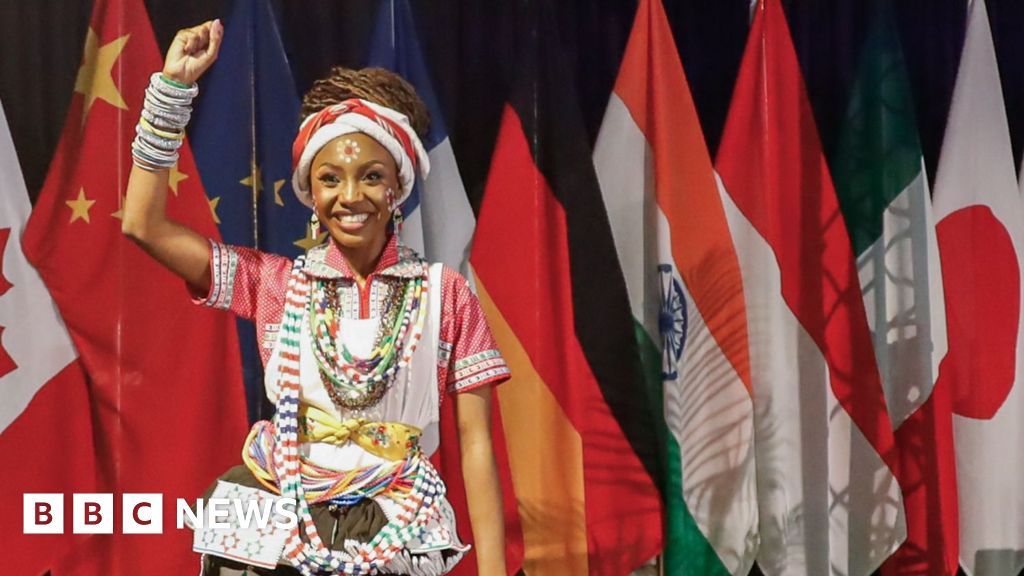South Africa's G20 Presidency: Navigating Trump's Absence, Multilateralism & Global South Priorities
 South Africa
Politics
South Africa
Politics

South Africa champions Global South issues at the G20, despite Donald Trump's controversial absence. The summit aims for consensus on debt, climate, and develop
South Africa's G20 Presidency: Navigating Diplomatic Challenges and Global Aspirations
South Africa embarked on its historic G20 presidency with ambitious goals, marking the first time an African nation hosted the influential gathering of world leaders. Its primary objective was to champion critical issues for developing economies, advocating for more affordable borrowing rates for nations that often pay two to four times higher interest on debts compared to advanced economies. The summit's agenda also prioritized securing climate change financing, boosting African participation in international forums, and ensuring African countries maximize value from their abundant critical mineral resources through domestic processing.
The Shadow of Trump's Absence
However, the discourse surrounding the summit has been largely overshadowed by the controversial absence of former US President Donald Trump. Citing widely debunked claims of a "white genocide" and widespread land grabs in South Africa, Trump's decision not to attend sparked a diplomatic standoff. The relationship between the US and South Africa has grown increasingly tense over the past year, marked by the expulsion of the South African ambassador, cuts in US aid, and the imposition of 30% tariffs on South African goods – the highest in sub-Saharan Africa. Initially, Trump indicated Vice-President JD Vance would attend, only to abruptly announce two weeks prior that no US representatives would be present.
Pretoria's Defiance and Diplomatic Reversals
Pretoria, South Africa's capital, responded with a mix of defiance and diplomacy, firmly refuting the "white genocide" claims and asserting the summit would proceed regardless of US participation. In an eleventh-hour reversal, less than 48 hours before the conference, the US announced it would send a small team of in-country diplomats for the handover ceremony but would not engage in any substantive discussions. Concerns now linger that South African diplomats could face exclusion from meetings when the US assumes the G20 presidency next year, a prospect Finance Minister Enoch Godongwana dismissed, stating, "We are members of the G20, we're not an invited country. So we don't need an invitation from anybody." He added that the only way to prevent their attendance would be visa denial.
Consensus Amidst Absences: An Unexpected Opportunity?
Despite the high-profile US absence, experts like Professor Richard Calland of the Cambridge Institute for Sustainability Leadership suggest this might, ironically, foster greater consensus. He posits that without constantly navigating Trump's unpredictable behavior, other leaders may find more space to collaborate and issue a joint declaration, allowing "middle powers" to drive reforms. South African Foreign Minister Ronald Lamola echoed this sentiment from Johannesburg, emphasizing the commitment to adopting a leaders' declaration, asserting the institution cannot be "bogged down by someone who's absent."
Global Support and the Future of Multilateralism
While Trump's non-attendance drew the most attention, he wasn't the sole leader absent. China's Xi Jinping sent Premier Li Qiang, Russia's Vladimir Putin was absent due to an International Criminal Court warrant, Mexico's Claudia Sheinbaum also skipped, and Argentinian President Javier Milei opted out in solidarity with Washington. Crucially, unlike the US, these nations dispatched senior delegations to represent their interests, a point Foreign Minister Lamola downplayed as "nothing abnormal."
Indeed, other global powers have expressed robust support for South Africa's presidency. France, the UK, and the European Union, for instance, signed a significant deal to boost the extraction and, crucially, domestic processing of critical minerals in South Africa. This aligns perfectly with Pretoria's year-long lobbying efforts to foster economic development, create jobs, and increase income by processing minerals within African countries before export.
Bridging the Global Divide
As the last G20 country in the current cycle and the final host from the Global South, following Indonesia, India, and Brazil, South Africa aims to bridge the developmental chasm between the global north and south, advocating for equity, sustainability, and shared prosperity. In an increasingly fragmented world, achieving consensus through multilateral institutions like the G20 is challenging but, as Professor Calland underlines, more vital than ever given existential global challenges from climate change to technological revolutions. While critics of multilateralism argue for bilateral deals, South Africa and other developing nations contend that complex issues like reducing borrowing costs demand the collective input of international bodies like the IMF, underscores the broader debate on multilateralism's enduring relevance and effectiveness. If South Africa secures a joint declaration on Sunday, it will powerfully demonstrate that crucial global consensus can indeed be forged even without the direct participation of the world's most powerful nation.